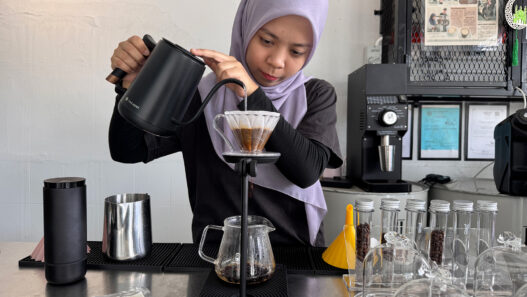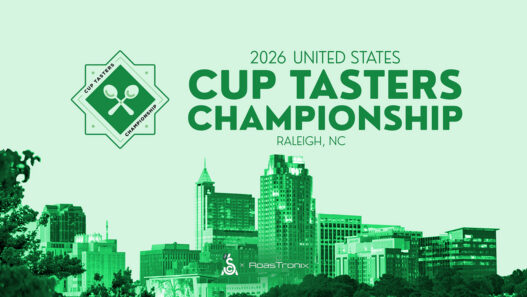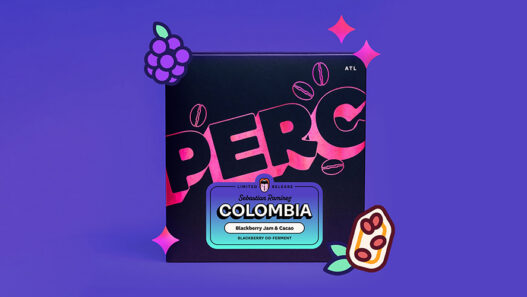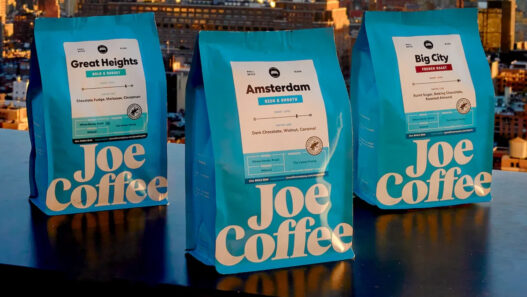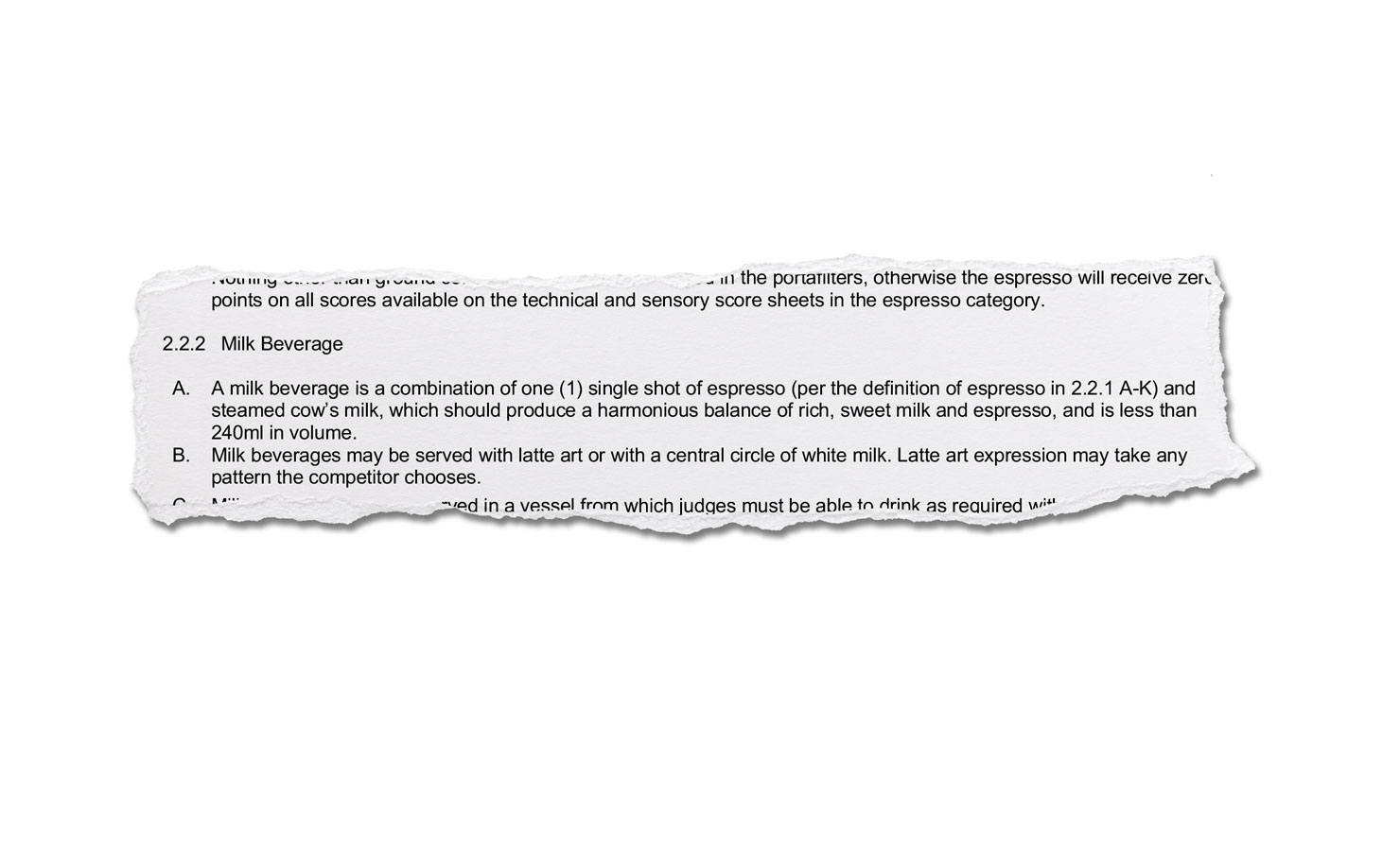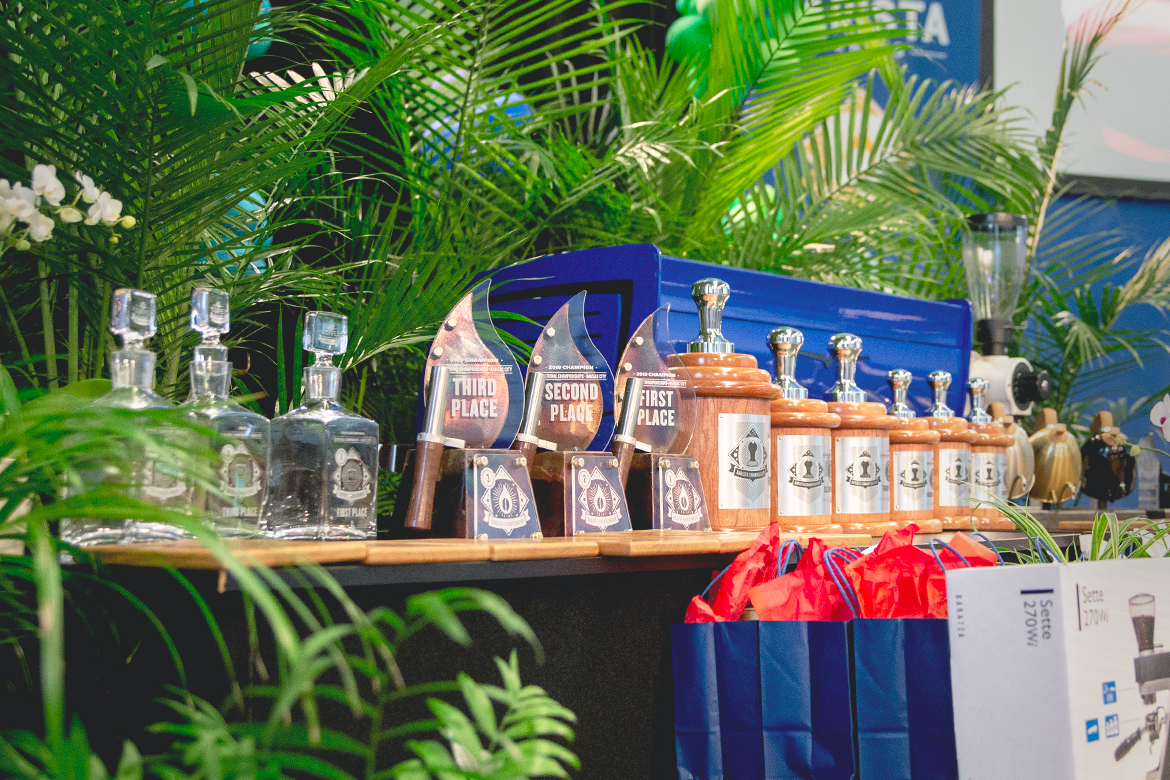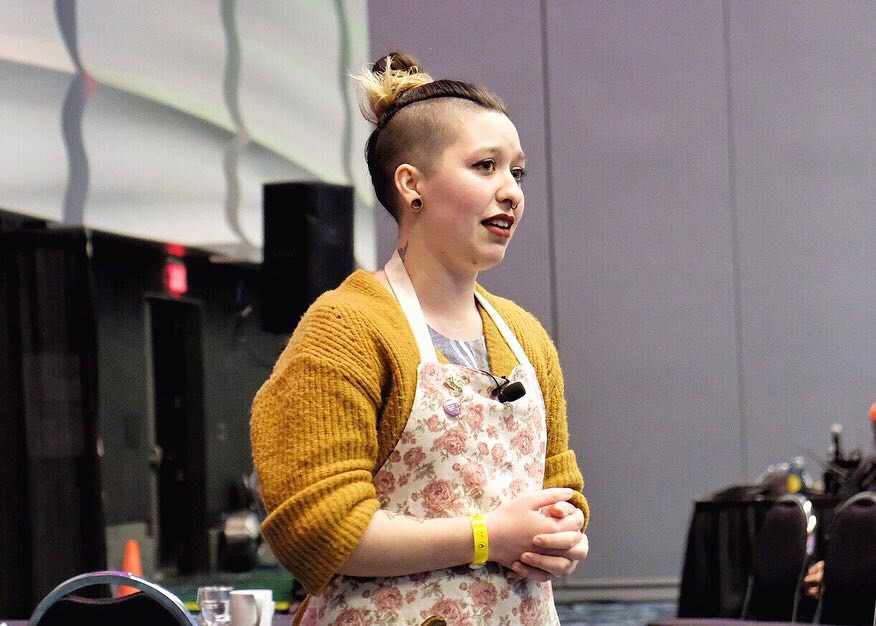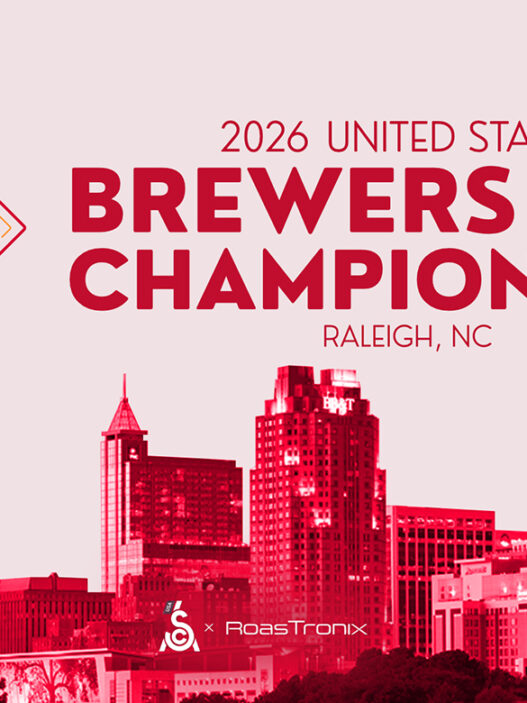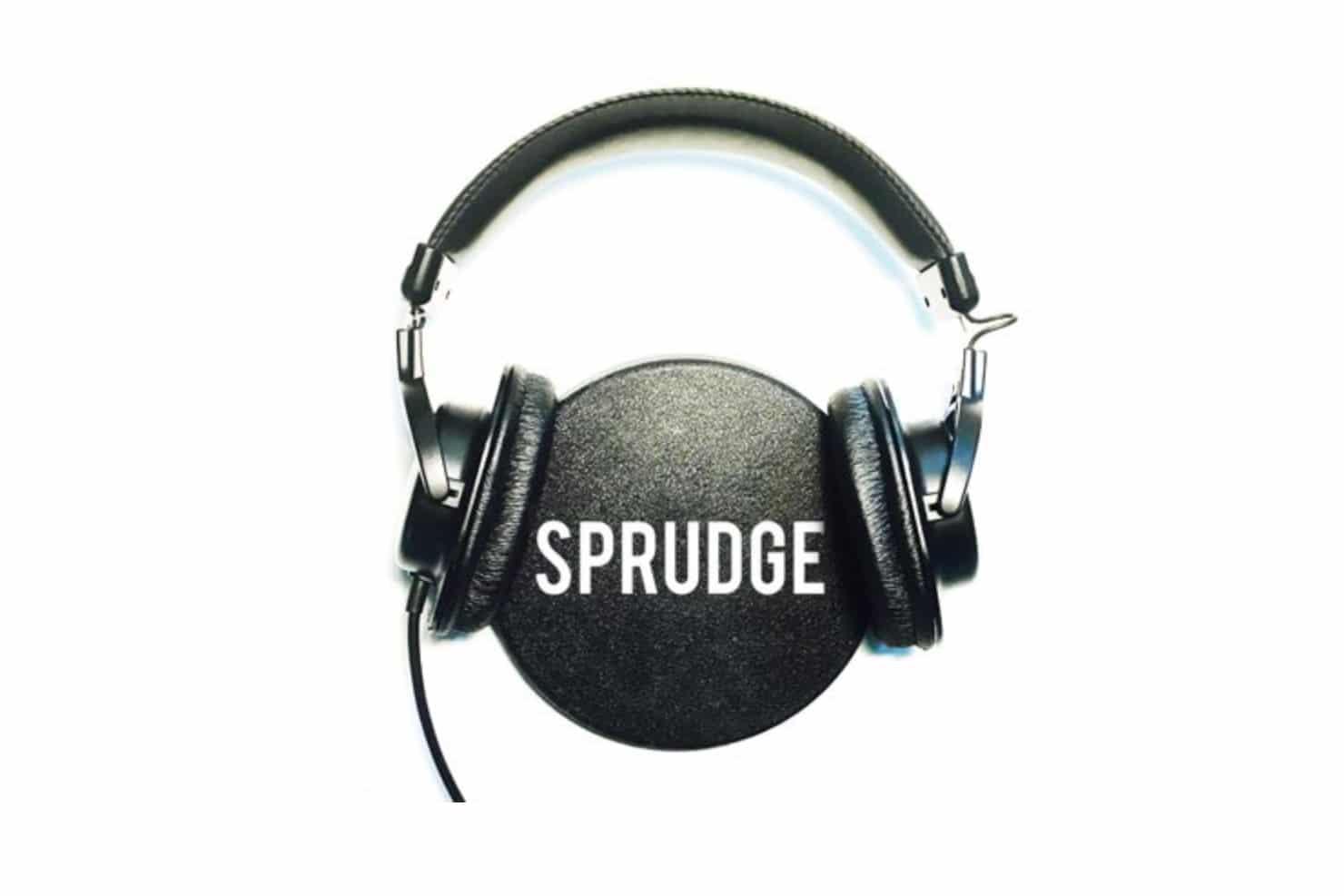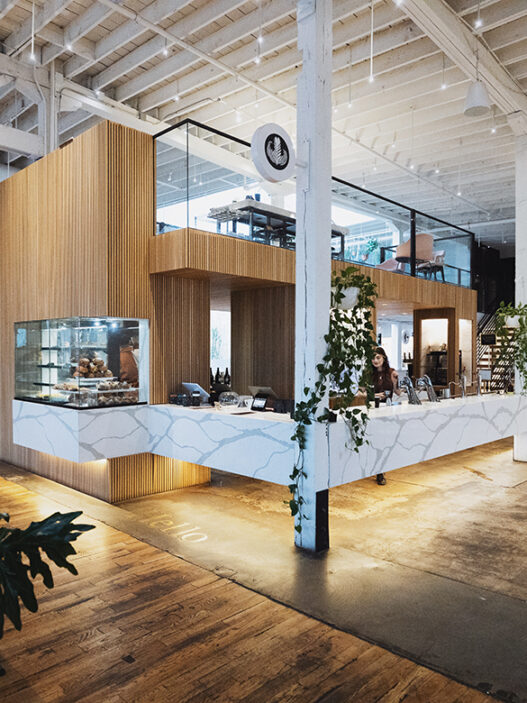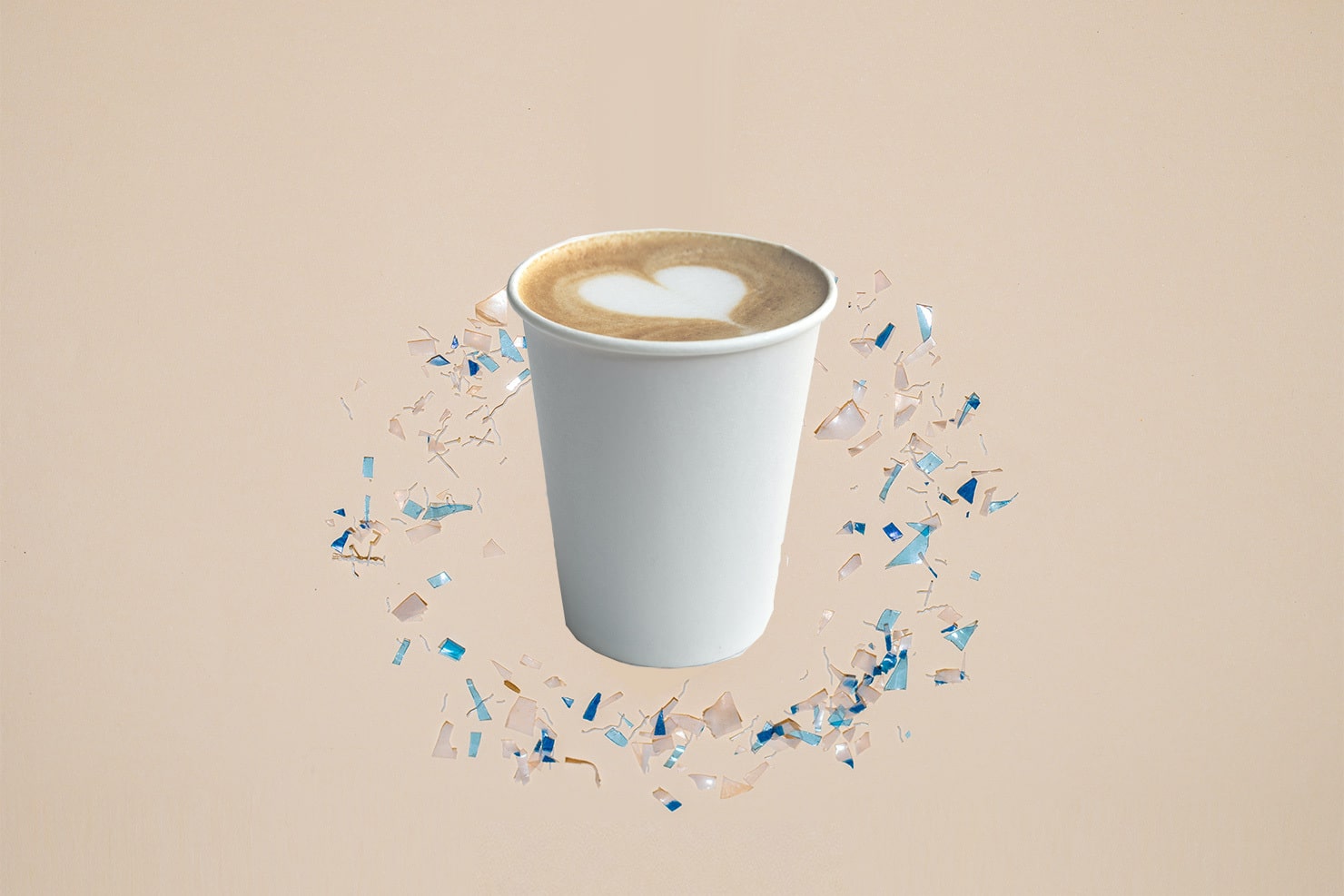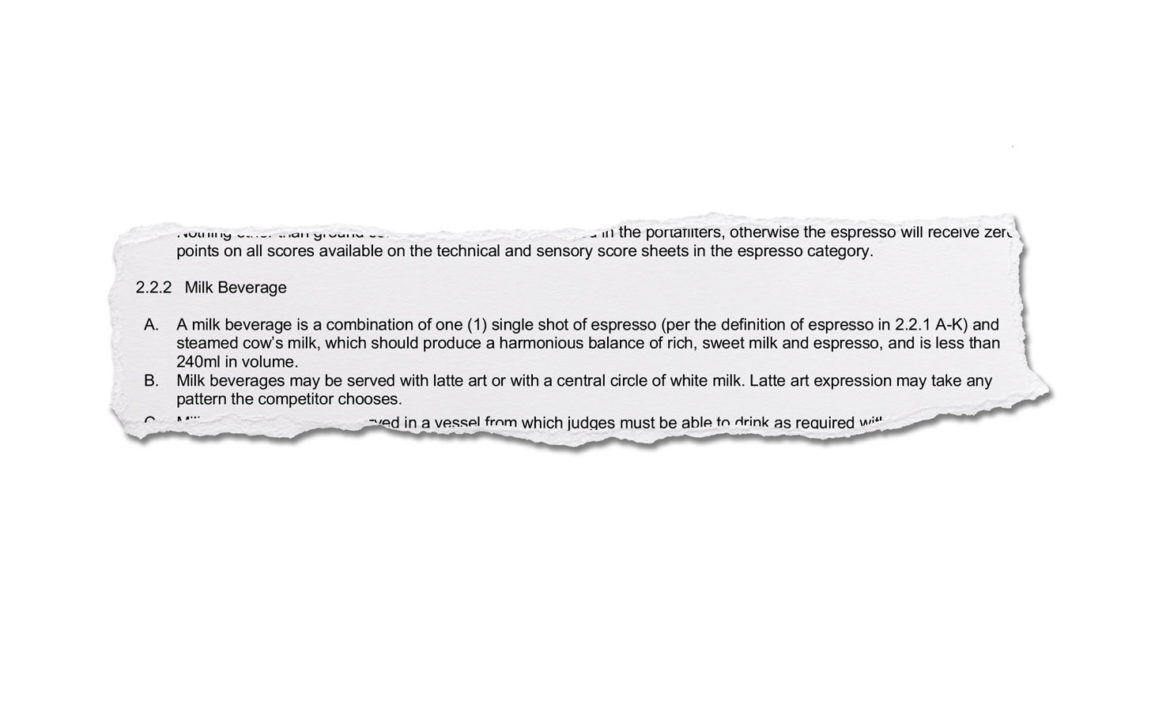
Is 2019 the year of the coffee competition statement? At two separate North American competitions this past weekend, competitors from the United States and Canada used their stage time to make the case for change in the specialty coffee industry.
Social statements and impassioned messaging on the competition stage have a long history, and are part of what we love so much about these events. This year we’re seeing competitors risk serious points and intentionally jeopordizing their ability to advance in order to make some of the biggest, boldest statements we’ve seen yet. Today we’re covering just two of these remarkable intentional actions—look for much more coverage in the days and weeks to come on Sprudge Media Network.
In Toronto, at the 2019 Canadian Barista Championship, competitor Chris Tellez confronted a long-established rule that disallows plant milks on the World Barista Championship stage. That would be Rule 2.2.2, which states “a milk beverage is a combination of one single shot of espresso… and steamed cow’s milk.” Tellez broke the rule willingly and with purpose, serving his judges milk drinks made using Minor Figures oat milk, earning zero points for the milk drink portion of his routine and resulting in a de facto disqualification. Check out the full rules here (via download) and you’ll see it under the section “Beverage Definitions.”
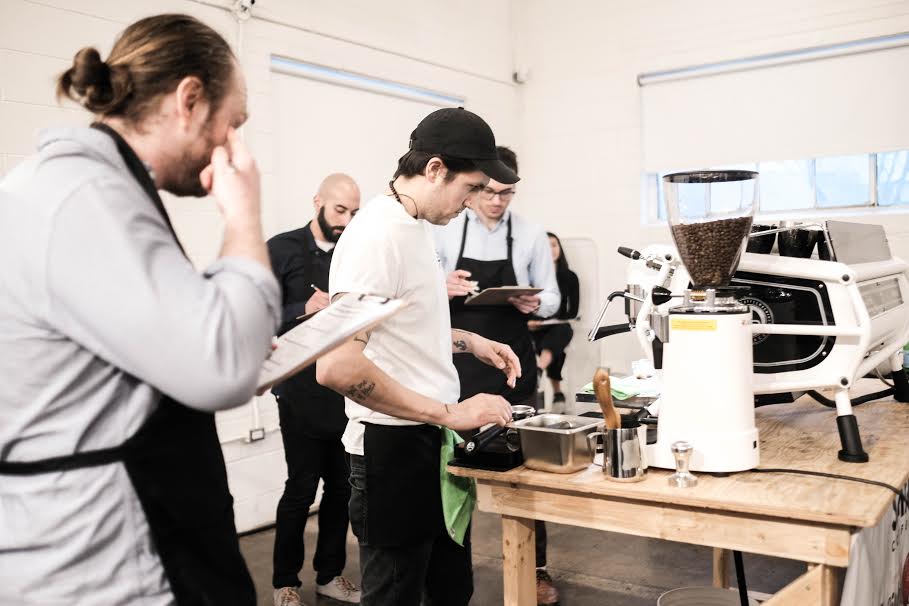
It’s fair to say this rule is outdated AF. In this day and age, so many coffee professionals work at the highest level using alternative milks—because their customers prefer it, mostly, though for some the choice runs deeper. Tellez, who is vegan, feels strongly that the competition stage can be a place for positive change. “There is not a single rule in the competition besides this one which puts into question a fundamental value that a person may have,” he tells Sprudge in the interview below. “[This rule] forces them to compromise in order to compete.”
Coffee competition rules are not etched upon some great inviolate tablet; indeed, they are annually evaluated and codified before each event season begins. The small group of coffee professionals who cooked up the barista competition format 20 years ago could have never predicted the quality of alternative milk we have today, especially the delightful steaming properties of oat milk. If you think it’s time for changing this rule, check out a new petition created by Floozy Coffee of Newcastle, New South Wales, coordinated for release with Chris Tellez’ routine this weekend in Toronto.
Sprudge caught up with Tellez digitally in the middle of one hell of a North American coffee competition weekend. Verily this story was originally intended to be a brief news piece but the interview came back great so we’re running the whole thing. Read on.
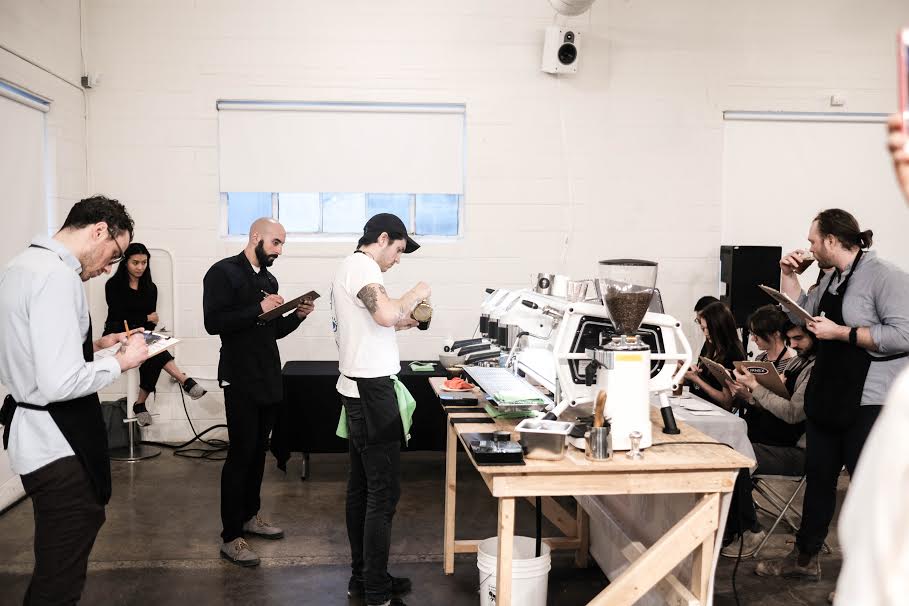
Hey Chris — thanks for speaking with Sprudge. How did the plan for this statement come into place? How long have you been working on it?
Chris Tellez: I had thought about this idea since my last time competing, but was unsure of how to make it work, especially because the availability of great plant-milks is a pretty recent occurrence. I first shared this idea with my partner, and then my very dear friend Priscilla Fisher of Floozy Coffee Roasters. I think right away they both saw the intention behind it, and how important it was to me and encouraged me to make it happen. I really went back and forth, trying to decide if this was the best course of action for a long time, but once it came time to actually sign up I knew two things for sure. That I wanted to compete, and that I just could not justify using an animal product in order to do so.
What was the reaction in the room like? Have you heard from a lot of people since the performance?
Pin drops followed by a wave of applause… pretty wild actually. I have never received that kind of a response from a performance. I can say that it definitely wasn’t the most tight, perfect performance I have ever given, but I think the honesty of what I was doing resonated with people.
I have heard from a ton of people, lots of friends, lots of people I’ve never met. Overall it was a very positive response, though I am sure I will continue to hear from people in the next little while with all kinds of reactions, though I hope these come in the form of thoughtful discourse, as that is really what I am trying to create with all this.
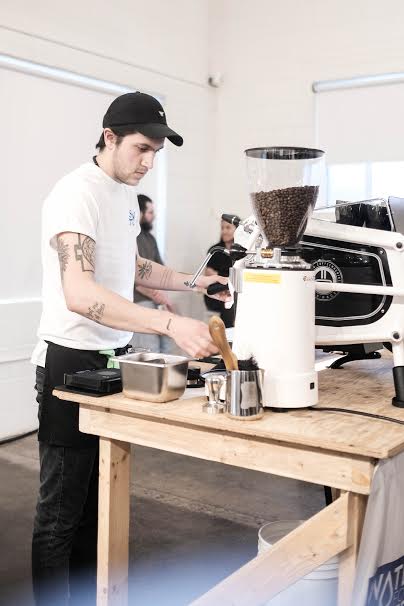
Talk to us about coordinating your routine with a petition—we’ve never seen something quite like that before.
Floozy was paramount in making this happen, and we most definitely planned to have the petition ready to sign once the performance was over. I also want to be super clear that the petition is coming from a place of huge respect and admiration for the competition. This competition has meant so much to me and my career over the years, and this is simply about testing the waters to see how many other people are interested in creating a dialogue surrounding this potential rule change. Floozy was a huge part of making this happen I truly hope that the WCE view this simply as a barometer of the industry, rather than an attack on all the incredibly hard work they do for us as baristas. I want this to spark respectful, honest dialogue and to help us all move forward, if that is what enough of the industry decides is important.
What role did your veganism play in the decision to make this statement?
I am vegan, and have been for the better part of the past 13 years. There was a short period where I was consuming animal products again, which coincided with a pretty heavy bout of depression, and manifested in an eating disorder. It was through becoming plant-based again that I was able to regain some of my balance and work through some of that trauma. this is something I’ve been really open about in the industry, and even lead a talk last year at the SCA Canada workshop all about Personal Wellness in the coffee industry.
My veganism most definitely played a role in my decision to do this, but regardless I think just looking at the pure environmental impact of milk and it’s major role in the carbon footprint of the coffee industry at the cafe level is enough to give anyone pause. Most of the numbers I pulled were from the United Nations’ FAO report on Dairy production, and since this is a global competition it felt like the most accurate numbers to describe our situation as an industry.
The other reality is that there are a lot of places in my life where I am not the most sustainable, eco-friendly and responsible as I could be, so this is no way is some kind of holier than thou sort of thing. I still drive a car, I still buy new clothing instead of getting everything first hand, I still have an iPhone, I have all the same habits as everyone else, but my veganism, and by extension this routine is my way of trying to offset those things a little, especially considering how environmental demanding our industry can be.
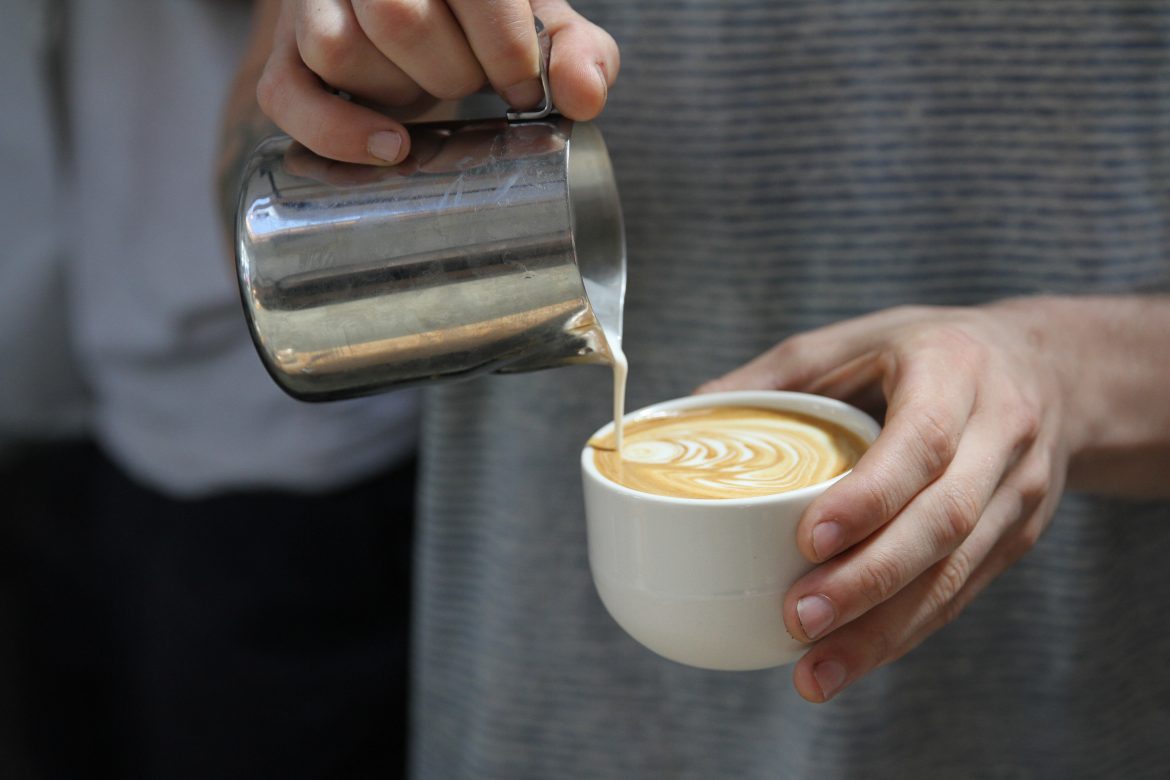
There is perhaps a critique to be made that by making this statement in competition you “took away a spot from someone else” or somehow demeaned the competition culture. Have you heard this critique? How do you respond?
This is a really, really important point. In fact, one of the competitors brought it up to me immediately after my performance backstage. She had been lucky enough to get a space after being on the wait list, and she was understandably upset with the idea of a competitor doing something like this. I believe she felt that I was not taking the competition seriously and that I was taking away a spot from someone who would. This is a valid critique and it is one a thought about a lot both before the competition, and since competing yesterday. I am really grateful that she expressed her feelings about it, and it was a really honest and respectful conversation, one I hope we can actually continue after the competition . I have two main points about this.
Firstly, she should be mad, it’s ridiculous for a competitor to have to either take zeroes or get disqualified for choosing not to use a product that disagrees with their value system. It’s a waste of a spot and it is not fair to any competitor, including myself. There is not a single rule in the competition besides this one which puts into question a fundamental value that a person may have and forces them to compromise in order to compete. We may disagree with aspects of drink or presentation scoring, or technical evaluation, but I really can’t think of a rule which is quite like this one in. So I am glad she is upset, and I think we should focus that into seeing some change.
Secondly, I sat out of the competition for three years, waiting for this rule to change, and nothing happened. I really wanted to compete this year, I mean, I love the competition, but I just couldn’t compartmentalize my beliefs just to compete. I took the competition seriously and I have great respect for it, but I just couldn’t agree with this one rule. You could argue that if you don’t agree to the rules, you shouldn’t be in the competition, and I understand that thinking, but I also know that real change happens more readily and rapidly when people take chances. I have a good record in the competition, and I think I could have done really well this year if I had used dairy milk, so just as much as I took a spot from another competitor, I put my own chances of winning aside in order to open dialogue that I really hope speaks for a group of people in the industry that perhaps have never competed because of a rule like this. I hope the net benefit is larger than just a single competitor.
I suppose people can look at it like a stunt, or like I am just trying to be controversial, but what I hope is that more and more the competition is used as a platform for change in our industry, in a way which still honours the competition culture itself, which was the concept of my entire routine and speech. Just this weekend at the US Coffee Champs we are seeing some really progressive conversations happening on stage, and I really just hope that this is seen in this light.
What’s your all-time favorite desert island alt milk?
Well, I ended up using the Minor Figures Oat milk for the competition, because it worked best with my coffee, and they’ve been super supportive of us in our cafes. But for everyday use at home in smoothies, cereal or whatever else, I am trying my best to make milk myself, because there is no waste in packaging and I can use Canadian oats and hemp!
Thank you.
Jordan Michelman (@suitcasewine) is a co-founder and editor at Sprudge Media Network. Read more Jordan Michelman on Sprudge.
Photos of Chris Tellez at the 2019 Canadian Barista Championship by Ashley Tomlinson (@thelittleblackcoffeecup) licensed for Sprudge Media Network.




